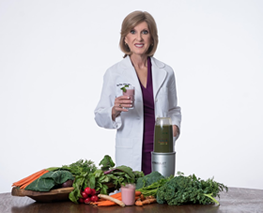If you’ve been feeling fatigued, struggling with weight gain, experiencing mood swings, or dealing with digestive issues, you may be wondering, “How can I balance my hormones naturally?” Hormones regulate nearly every function in the human body, and when they become imbalanced, they can disrupt overall well-being. While medications and synthetic treatments are available, many people prefer to restore hormonal harmony through natural approaches. By making intentional lifestyle changes, prioritizing proper nutrition, and reducing stress, you can support your body’s natural ability to regulate hormones.
Nourish Your Body with a Nutrient-Dense Diet
One of the most effective ways to answer the question “How can I balance my hormones naturally?” is through a nutrient-dense diet. The foods you consume have a direct impact on hormone production and function. Healthy fats are essential for hormone synthesis, and incorporating foods such as avocados, olive oil, fatty fish, and nuts can provide the necessary building blocks for hormone regulation. Fiber-rich foods, such as vegetables, legumes, and whole grains, help flush out excess hormones, particularly estrogen, and support digestive health. Avoiding processed foods and refined sugars is equally important, as these can contribute to insulin resistance and disrupt overall hormonal function.
Manage Stress to Reduce Cortisol Levels
Chronic stress is one of the most common culprits behind hormonal imbalances. If you’re asking, “How can I balance my hormones naturally?” consider stress management as a key factor. When the body is under constant stress, cortisol levels remain elevated, which can negatively affect other hormones such as insulin, estrogen, and thyroid hormones. Practicing mindfulness techniques such as meditation, deep breathing, and yoga can help lower cortisol levels and promote a sense of calm. Regular physical activity is another powerful tool in stress management, but it is important to find a balance—excessive high-intensity workouts can actually raise cortisol levels, while moderate exercise, such as walking or strength training, can help regulate stress hormones. Spending time in nature and engaging in relaxing activities can also aid in lowering stress levels and restoring hormonal equilibrium.
Prioritize Quality Sleep
Another key way to balance hormones naturally is prioritizing quality sleep. The body relies on a consistent sleep schedule to regulate hormones such as melatonin, cortisol, and growth hormone. Creating a relaxing nighttime routine, such as reading or taking a warm bath, can signal to the body that it is time to wind down. Avoiding blue light exposure from screens at least an hour before bed can also support melatonin production and improve sleep quality. Without adequate sleep, the hunger and satiety hormones—ghrelin and leptin—can become imbalanced, leading to increased cravings and difficulty managing weight.
Support Gut Health for Natural Hormonal Balance
Gut health plays a crucial role in the body’s ability to regulate hormones. If you’re still wondering, “How can I balance my hormones naturally?” start by focusing on your gut microbiome. The gut influences hormone production and metabolism, and an unhealthy gut can lead to inflammation and hormone disruption. Consuming probiotic-rich foods such as yogurt, kimchi, and kefir can help nourish beneficial gut bacteria, while prebiotic foods such as garlic, onions, and bananas support their growth. Avoiding inflammatory foods, artificial sweeteners, and excessive alcohol can also promote a healthier gut environment, which in turn supports hormone function.
Reduce Exposure to Endocrine Disruptors
A hidden factor in hormonal imbalances is exposure to endocrine disruptors. The endocrine system is highly sensitive to environmental toxins found in plastics, personal care products, and household cleaners. These chemicals can mimic or interfere with natural hormone function, leading to imbalances. Switching to non-toxic, organic alternatives for skincare and cleaning products can reduce exposure to harmful chemicals. Using glass or stainless steel containers instead of plastic can prevent the ingestion of hormone-disrupting compounds such as bisphenol A (BPA). Choosing organic produce whenever possible can also help minimize exposure to pesticides and herbicides that affect hormonal health.
Engage in Hormone-Supportive Exercise
Exercise has a direct impact on hormone balance, but the type and intensity of physical activity matter. If you’re wondering, “How can I balance my hormones naturally?” incorporating the right exercise routine can help. Strength training is particularly beneficial for promoting testosterone and growth hormone production, both of which support metabolism and muscle health. Yoga and Pilates can help lower cortisol levels and improve flexibility, while low-intensity cardio, such as walking and swimming, can regulate insulin levels and support overall hormonal stability. The key is to engage in a variety of physical activities that keep the body moving while preventing excessive stress.
Stay Hydrated with Hormone-Supportive Beverages
Proper hydration is another essential way to balance hormones naturally. Drinking enough water throughout the day helps the body flush out toxins and maintain homeostasis. Herbal teas, such as spearmint, green tea, and chamomile, can provide additional hormone-balancing benefits, while excessive caffeine and alcohol intake can contribute to imbalances by increasing cortisol and disrupting sleep patterns. Choosing hydrating and hormone-supportive beverages over processed or sugary drinks can make a significant difference in overall well-being.
Incorporate Natural Supplements and Herbal Remedies
Natural supplements and herbs can also play a role in hormone balance. If you’re searching for ways to balance your hormones naturally, consider adding adaptogenic herbs, such as ashwagandha, maca root, and rhodiola, to your routine. These herbs help the body manage stress and stabilize hormone levels. Magnesium is another important nutrient that supports stress management, muscle relaxation, and hormone production. Vitamin D, which is crucial for hormone regulation, can be obtained through sun exposure or supplementation if levels are low. Ensuring that the body receives these essential nutrients can aid in restoring balance and preventing hormone-related issues.
Support Liver Detoxification
The liver plays a key role in metabolizing hormones, especially estrogen. Cruciferous vegetables such as broccoli, cauliflower, and Brussels sprouts contain compounds that promote estrogen detoxification. Starting the day with warm lemon water can assist in flushing out toxins and improving liver function. Reducing alcohol consumption can further support the liver’s ability to process hormones efficiently.
Maintain a Consistent Daily Routine
Hormonal balance thrives on consistency. If you’ve been asking, “How can I balance my hormones naturally?” creating a regular routine is one of the best things you can do. Erratic eating, sleeping, or exercise habits can lead to hormonal fluctuations. Eating at regular intervals helps regulate blood sugar levels and prevent insulin imbalances. Waking up and going to bed at the same time each day supports melatonin and cortisol rhythms. Incorporating movement throughout the day, rather than remaining sedentary for long periods, further contributes to balanced hormone levels.
Contact Dr. Cheryl Winter Today
If you’ve been asking yourself, “How can I balance my hormones naturally?” the answer lies in a holistic approach that addresses multiple aspects of daily life. Nutrition, stress management, sleep, gut health, and environmental factors all play a role in maintaining hormonal equilibrium. By making gradual, sustainable changes, the body can restore its natural balance, leading to improved energy, mood, and overall health. Prioritizing these lifestyle adjustments and listening to the body’s needs can help achieve long-term hormonal harmony and well-being. Contact Dr. Cheryl Winter today to start your journey toward natural hormonal balance and optimal health!








